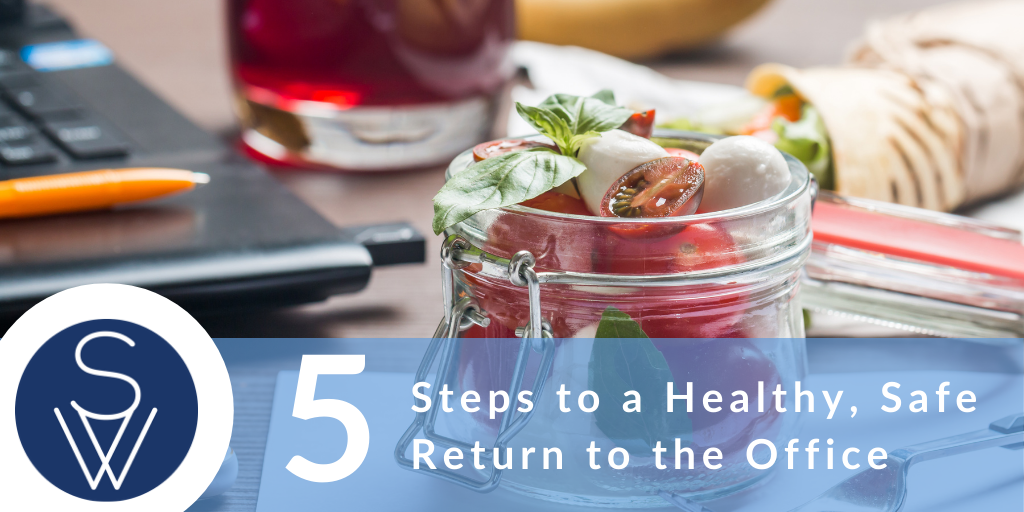Why the concept of “Radical Self-Care” is the real key to healthy work re-entry.
As vaccinations become more widely available in MN, offices that have been operating with most, or all employees working remotely, are making plans to re-open their doors. In many ways, a return to a routine of leaving the house each morning for work is welcomed. However, for many of us, working from home presented an opportunity for greater self-care.
As many of us prepare to re-enter the daily grind, how can we take what we've learned from our time at home with us back into the re-opening world?
What is Radical Self-Care and Why Do We All Need to Start Practicing Now?
Recently, I listened to an eye-opening interview by Minnesota Public Radio’s Angela Davis. Her guest, St. Paul-based Dr. Joi Lewis, brought a powerful – and practical – perspective on the purpose and urgency of what she calls the Radical Act of Self-Care, especially after trauma. Her take: beyond the obvious reason fact that, when we take care of ourselves, we feel and function better, there is a higher truth at work. When we fail to take care of our basic needs, we deplete ourselves, we decrease our ability to support each other and, as a result, we undermine and harm ourselves, our families, and our communities. My take: the logistics of creating a physically safe and healthy office space for our employees’ return to the office will be the easy part. The tougher part: creating a work environment that helps keep all team members emotionally healthy and supports their post-pandemic healing.
The more I have looked into this concept, the more clearly I see that the sooner we make self-care a priority, the sooner we can be fully productive, functional, and healthy at work. Fortunately, there are 5 specific things each of us can do, starting right now, to foster a truly healthy, safe return to work.
Eat Healthy Foods and Drink Lots Of Water
Some of us have used this past year to experiment with healthy cooking. For others of us, though, it has been one long stretch of stress eating, boredom eating, and reaching for quick comfort from the very foods that, ultimately, only make us feel worse, weakened, sluggish, and yes, overweight. For many an uninspired cook who
has spent the last year sinking deep into poor nutritional habits, the idea of returning to work and becoming fully, 3D-visible to coworkers can be painful to the point of anxiety. Worse, there is no way for you to know how many on your team are struggling with this. The best way you can help them is to shift the focus away from the narrative around the “quarantine 15” and toward the notion of “food as good medicine.” In other words, don’t engage in conversation around physical appearances or weight loss goals. After a year of sacrifice and loss, the idea of giving up anything else – including junk food – might seem impossible to achieve for many employees. A better approach is to begin slowly. Add simple, healthy foods to your shopping list, your pantry, and your fridge. If you have fresh fruits within arm’s reach, your chances of reaching for that instead of the chocolate chip cookie are greatly increased. Look for – and celebrate – the little improvements in your energy level and attitude as you build or rebuild your own nutritious eating and hydrating practices.
Honor the Need for Sleep
A while back, I wrote about one of the many lessons this pandemic has taught me: the need to rethink some old, unhealthy ideas about what it takes to be perceived as hardworking and committed to your career. The example I used then referred to the misguided idea that, if you’re truly committed to your work, you drag yourself into the office, no matter how unwell you feel. But here’s another, related myth in need of busting: that our willingness to sacrifice our sleep for work success is something to be applauded. It’s not. The truth is, all human bodies have an absolute need for sufficient whole-body rest. When you pull an all-nighter hunched over your desk, only to suit up at sunrise and get back to the grind, you are harming yourself. Not just for that one day. Not just physically. But over the long haul, physically, emotionally, mentally, and socially. You become less capable of accessing your optimism, collaborative skills, and sheer fortitude. Think about it. That kind of damage is actually incompatible with long-term high performance or contribution. It’s time to start seeing and talking about sleep deprivation more like a chronic but curable illness. Schedule your sleep with the same level of commitment you’d give to taking life-saving medicine.
Move Your Body
For just about everyone who used to work “at the office,” the abrupt switch to officing at home has been a major shock to the system. Yes, in theory, WFH made it easier to fit more exercise into each day. In real life, that hasn’t been the case for everyone. But our bodies need a certain (surprisingly minimal, actually) level of movement every day to keep us well and capable. Exercise doesn’t have to mean a hardcore workout. Again, don’t set goals that are so lofty that they feel unattainable. Start small. Here’s a fact: just 20 minutes of uninterrupted brisk movement each day (like seriously, even just walking through your neighborhood) is enough to deliver enormous benefits to your physical health and mental well-being.
Take Mental Health Breaks – and Normalize Them
Some days, you might be right in the middle of a task when you realize you need to step away from the desk, take a short walk, or even just stare out the window for a few minutes. That might be all it takes to get you back in the groove. Other times, you might sail through the week, crushing it on every to-do you tackle when all of a sudden, you’re deeply physically and mentally exhausted or debilitatingly preoccupied with a million worries. If this is new to you since the start of the pandemic, you may fear that you’ve lost your touch or you’re letting others down. Don’t go there. You, along with everyone else, have just survived this past year. Expect to need more mental health breaks. Plan for them. Instead of waiting until you hit the wall, build in mini step-aways during the day that help you clear your head and catch your breath and allow yourself to take mental health days off work when you need them.








